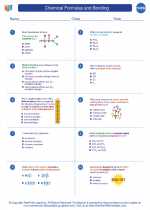Ecological System
An ecological system, also known as an ecosystem, is a community of living organisms (biotic components) interacting with each other and their non-living environment (abiotic components) within a specific area. These interactions are characterized by the flow of energy and the cycling of nutrients, resulting in a dynamic and interconnected web of relationships.
Components of an Ecological System
- Abiotic Components: These are the non-living parts of the ecosystem, including air, water, soil, sunlight, temperature, and nutrients.
- Biotic Components: These are the living organisms within the ecosystem, including plants, animals, microorganisms, and fungi.
Key Concepts in Ecological Systems
- Energy Flow: Energy enters the ecosystem from the sun and flows through the biotic components via processes such as photosynthesis and cellular respiration.
- Nutrient Cycling: Nutrients such as carbon, nitrogen, and phosphorus are recycled within the ecosystem through processes like decomposition, nutrient absorption, and nutrient release.
- Food Chains and Food Webs: These illustrate the transfer of energy and nutrients through the ecosystem via feeding relationships between different organisms.
- Succession: Ecological succession refers to the process of ecosystem development and change over time, including primary and secondary succession.
- Ecological Pyramids: These represent the distribution of energy, biomass, and numbers of organisms at different trophic levels within an ecosystem.
- Biogeochemical Cycles: These cycles describe the movement of essential elements between the living and non-living components of the ecosystem, such as the carbon cycle and the water cycle.
Importance of Understanding Ecological Systems
Studying ecological systems is crucial for understanding the interdependence of living organisms and their environment. It provides insights into the delicate balance of nature, the impact of human activities on ecosystems, and the conservation of biodiversity. By understanding ecological systems, we can make informed decisions about resource management, environmental conservation, and sustainable development.
Study Guide for Ecological Systems
To effectively study ecological systems, consider the following steps:
- Gain a clear understanding of the components of an ecosystem, including both biotic and abiotic factors.
- Explore the concepts of energy flow and nutrient cycling within ecosystems, and how they support the functioning of ecological systems.
- Examine the dynamics of food chains, food webs, and ecological pyramids to understand the transfer of energy and nutrients through different trophic levels.
- Investigate ecological succession and its role in ecosystem development and stability.
- Learn about the various biogeochemical cycles and their significance in maintaining the balance of elements within ecosystems.
- Consider real-world examples of ecological systems and the impact of human activities on these systems.
- Engage in hands-on activities, such as field observations and experiments, to gain practical insights into ecological systems.
- Discuss the importance of conservation and sustainability in preserving ecological systems for future generations.
- Stay updated with current research and developments in the field of ecology and environmental science.
By following this study guide, you can develop a comprehensive understanding of ecological systems and their significance in the natural world.
.◂Chemistry Worksheets and Study Guides High School. Chemical Formulas and Bonding

 Worksheet/Answer key
Worksheet/Answer key
 Worksheet/Answer key
Worksheet/Answer key
